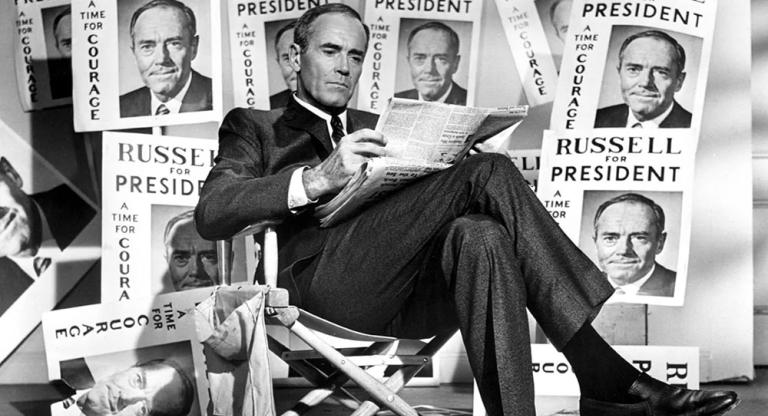Hlynur Pálmason begins Godland (2022) with a box of photographs. A title card claims that the film was inspired by such a cache, taken by a 19th-century missionary, but the photographs are Pálmason’s invention.
Lucas (Crosset Hove), a priest, hires a Danish interpreter and a band of Icelandic guides, led by the majestic and irritable Ragnar (Ingvar Sigurðsson), to take him on the arduous journey to a Christian colony at the edge of the world. Lucas, a fleshy pink flower on the rocky landscape, withers under the open, relentlessly sunny sky and the weight of his camera. A worm glides over the earth more gracefully than Lucas.
Along the way, he sets up the elaborate contraption to take pictures of his companions. Godland is shot as if we are seeing the world through Lucas’s camera. The aspect ratio is nearly square, the corners are rounded, and the edges are frayed. It’s a gimmick, but without the sour tang of a cheap trick—and how impressive to fit an epic landscape into such an intimate frame.
Lucas doesn’t understand Icelandic, and his crew barely speaks Danish. Not even his horse can figure out what he wants. He wants to love this place, but he’s frustrated, physically and emotionally uncomfortable. To protect his pride, he preemptively pushes the land, so “terribly beautiful,” and its people away. They now disgust him. He has lost the romance created by his imagination, and he suffers that loss. It is rapturously painful to watch Hove’s performance of a man’s descent into pitiful rage. Calling out to God, he begs to be put out of his misery: “I cannot speak to anyone. I don’t have a voice.” Mad from loneliness, the hopeful man who left is not the bitter man who arrives.
The colony is headed by a sturdy Danish patriarch, who lives with his two daughters. In theory, Lucas should fit right into the homestead: he is as delicate and Danish as their lace curtains. But the father promptly rejects him; he cannot stay in the house. Anna, the elder daughter, is desperate to get back to Denmark, to return to a home that she barely knows, and Lucas is the closest thing. The father knows this, and in a family, as in Christendom, there is room for only one man to be obeyed.
If Pálmason, an Icelandic director who has lived in Denmark most of his life, has inserted himself into the narrative, it is as Ida, the younger daughter, played by his real-life daughter, Ída Mekkín Hlynsdóttir. She is the only one in the film who seems comfortable with her hodgepodge of language and identities, because she is connected to the nationless earth, as all young children are, through her love of animals.
The ability to speak with God is ultimately far less important than the ability to understand each other, animals, water, and grass. The resistance to accept that there is a difference between what is “natural” and what is “normal” is what tortures these men, and drives them to unholy fury.
Godland, despite its violence, is a gentle viewing experience. It invites meditation on home, grief, desire, the passage of time, and the indifference of nature. Those who adapt to the pace of the film’s two and a half hours will be rewarded with the kind of sublime peace that comes from a long, silent afternoon watching sheep graze from the earth to which we all will return.



